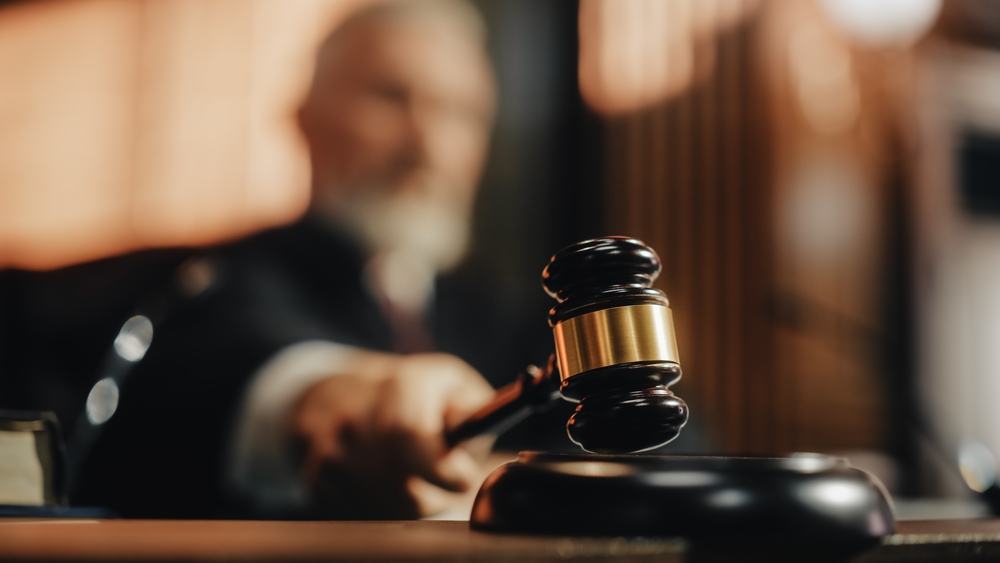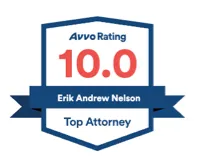Picture this: Your life is turned upside down in an instant and you’re suddenly facing domestic violence accusations that threaten not only your livelihood but also your most important relationships. It’s a nightmare that no one ever wants to experience, yet it does happen all too often. But here’s the good news – hope is not lost for those who are wrongly accused. A skilled domestic violence attorney can be your lifeline during these trying times, guiding you through the labyrinth of legal proceedings to secure your future. Don’t wait another minute; get the professional help you need now before it’s too late. Because when it comes to clearing your name and reputation, time is truly of the essence.
A domestic violence attorney can provide legal representation and support for individuals who have been accused of or are victims of domestic violence. They can work with clients to determine the best course of action, represent them in court proceedings, and provide resources such as counseling or support groups. It is important to find an experienced and compassionate attorney who can guide you through the legal process and help protect your rights.

Understanding Domestic Violence
Domestic violence is a pattern of behavior in which one partner seeks to maintain control or gain power over the other partner in an intimate relationship through any means possible. It includes physical, emotional, sexual, financial, and psychological abuse. Domestic violence does not discriminate and can occur in any type of relationship, regardless of age, gender, race, religion, or socioeconomic status.
For example, domestic violence can take the form of physical abuse where a partner hits, slaps, shoves, or chokes their significant other. Emotional abuse may involve name-calling, isolation from friends and family members, or threats of harm. Sexual abuse includes forcing sexual acts without consent. Financial abuse involves controlling money and access to resources. Psychological abuse undermines a person’s self-esteem and often leads to mental health issues such as depression and anxiety.
Domestic violence is a widespread problem in the United States. On average, nearly 20 people per minute are physically abused by an intimate partner in the country. In a survey conducted by the National Coalition Against Domestic Violence, 1 in 4 women and 1 in 9 men experience severe intimate partner physical violence, intimate partner contact sexual violence, and/or intimate partner stalking in their lifetime.
Some may argue that instances of domestic violence are exaggerated or blown out of proportion. However, research has shown that victims often underreport incidents due to fear of retaliation or shame. Furthermore, domestic violence cases are complex and require specialized legal attention of a domestic violence attorney to ensure justice is served for all parties involved.
Understanding the different forms of domestic violence is just the first step towards identifying abusive behavior and protecting oneself from harm. The consequences of domestic violence on victims can result in long-lasting effects that need to be addressed with sensitive care and therapeutic support.
Effects on Victims
Victims of domestic violence may experience physical, emotional, and psychological injuries that can last a lifetime. Physical violence can cause severe injuries, ranging from bruises, broken bones, head injuries to critical health conditions such as organ damage. Emotional abuse can include feelings of anxiety, depression or suicidal thoughts. Long-term effects may also include substance abuse and chronic health issues like heart disease and cancer.
For example, some victims may feel trapped in the cycle of abuse due to fear of retaliation from their abuser which will impact their daily life, including their work performance, family relationships or overall mental well-being. Furthermore, children who witness domestic violence are more likely to experience developmental issues and struggle with socialization.
Victims must seek medical attention and legal assistance from a domestic violence attorney immediately after an incident of domestic violence to avoid further escalation and subsequent harm. However, seeking help for one’s situation is only a part of the solution and addressing long-term effects on mental health and self-esteem is critical for overcoming the trauma of abuse.
The process of coping with the consequences of domestic violence can be overwhelming and scary. Understanding that you’re not alone in your situation leads to a path towards healing with emotional support through therapy, support groups or counseling. It’s essential to surround yourself with people who understand your experience and can provide a safe space for you.
- Domestic violence can have long-lasting physical, emotional and psychological effects on victims and children who witness it. Seeking medical and legal help immediately after an incident is crucial to prevent escalation, but addressing long-term mental health issues and self-esteem is also vital. Coping with the consequences of domestic violence can be overwhelming, but seeking emotional support through therapy and support groups can lead to healing. It’s important for victims to understand that they’re not alone and to surround themselves with a supportive community.
Legal Definitions and Consequences
Domestic violence is defined as any violent or abusive behavior that a person uses to exert control over their intimate partner. This behavior can be physical, emotional, verbal, financial, or sexual in nature. Domestic violence laws vary from state to state, but generally, the consequences of being convicted of this crime are severe.
Conviction for domestic violence can result in mandatory jail time, probation, fines, and community service. Depending on the severity of the offense and if the victim suffered permanent damage or death, penalties may increase in severity. Moreover, a criminal conviction could negatively impact an individual’s reputation, profession, and future employment opportunities. In some cases, it can also lead to the loss of government assistance programs such as Supplemental Nutrition Assistance Program (SNAP formerly known as Food Stamps).
Victims of domestic violence may also pursue civil remedies i.e., restraining orders and injunctions against harassment to protect themselves from further abuse.
It is worth noting that even if the victim decides not to press charges, law enforcement may still press charges if there is sufficient evidence of wrongdoing. This means that an individual accused of domestic violence must take legal action urgently, as failing to do so can have significant consequences on their lives.
In most states including Texas and Louisiana, two primary forms of punishment for domestic violence include probation/deferred adjudication and jail time up to ten years along with fines between $4,000-$10,000 as per the severity level of charges. If a crime has occurred within a family relationship then it will be witnessed more harshly than crimes of a similar nature outside of families.
While domestic violence is often assumed to involve men as aggressors and women as victims according to many studies suggest that women are not always outmatched by men in regards to aggression. Although both men and women report being victims of domestic violence, only a few details about female-on-male violence is reported. Hence, this issue needs revisiting to get better clarity as it will help in framing policies and providing assistance to the victims.
Hiring a Domestic Violence Attorney
When charged with domestic violence, securing legal representation from a domestic violence attorney is essential. An experienced domestic violence attorney offers advocacy, legal expertise, and knowledge that can significantly impact the outcome of the case. A competent attorney also knows how to navigate the complex legal system and can negotiate on behalf of their client to ensure they receive a fair trial.
The importance of choosing a domestic violence attorney cannot be underestimated. Cases involving domestic violence are not always clear cut, and having an experienced legal ally to guide you through all stages of the litigation process is crucial. Moreover, hiring a lawyer who is aware of community resources or support groups can help all parties involved to deal with psychological stress and trauma caused by the abuse.
An excellent domestic violence attorney should also be skilled in negotiations for plea deals or alternative sentencing options such as community supervision or anger management programs. In these ways, an experienced lawyer can work towards getting charges reduced or dismissed entirely.
It is worth noting that criminal prosecution in domestic violence cases rests mainly on evidence gathered at the scene of the crime. Hence retaining an attorney quickly can help secure some critical evidence that might prove helpful in litigating a case later on.
Erik Nelson has successfully represented clients accused of family violence for years now and has helped many people facing similar situations over time. His extensive experience handling clients charged with domestic violence provides testimony that expertise plays a paramount role in these cases.
For instance, if the primary witness decides not to testify during trial proceedings indicating he/she wants to dismiss charges that does not necessarily mean there won’t be consequences for an individual charged with domestic abuse. The state prosecutor may still choose to go forward with criminal charges. An experienced criminal defense attorney may be able to negotiate on behalf of their client for a deal that will help reduce the severity of charges or secure alternative sentencing options.
Importance of Advocacy and Legal Expertise
Domestic violence cases are often complex, and they require the attention and expertise of a qualified domestic violence attorney. Hiring an attorney who specializes in such cases is important because they will have the knowledge and experience needed to advocate for their clients effectively.
An experienced domestic violence attorney understands the legal system’s inner workings and can help victims navigate through it. They can provide crucial guidance on how to document evidence, secure protective orders, and file police reports so that victims can get the justice they deserve.
Moreover, having a lawyer on your side means that you have someone advocating for your best interests. Domestic violence victims may be overwhelmed by feelings of fear, uncertainty, and anxiety during these times. A lawyer can provide emotional support while fighting aggressively for their client’s rights.
In one case I handled, my client was wrongfully accused of domestic violence by his spouse during their divorce proceedings. The allegations were baseless, but the consequences of a conviction would have been significant for him – he could lose his job, his reputation would be tarnished permanently, and he might spend time in jail.
With my assistance, we were able to prove that the accusations were unfounded, gather evidence to support my client’s defense, and present our case effectively in court. As a result, my client was cleared of all charges entirely.
Financial Assistance and Legal Resources
Victims of domestic violence often face several financial barriers that prevent them from seeking legal help. For those who cannot afford legal representation or other related expenses, several organizations can provide financial assistance.
Legal aid societies are nonprofit organizations devoted to assisting people with limited resources access legal services. These organizations connect low-income individuals with pro bono or reduced-fee lawyers who offer free legal advice or represent clients in court without payment.
Victims of domestic violence may also seek funds from state and federal government programs that offer financial assistance to victims of violent crime. These programs may provide reimbursement for expenses like medical bills, funeral costs, or counseling services.
Additionally, victims of domestic violence have access to victim support groups that assist in navigating the legal system, providing emotional support, and connecting them with other resources. Support groups connect victims with others who are facing similar situations, providing a safe and confidential environment for sharing experiences and feelings.
Seeking legal help is like building a house. You need the right materials and tools, but you also need someone experienced to guide you through the process. A domestic violence attorney not only has the expertise but also the resources to help clients build their cases brick by brick until they achieve success in court.
Funds, Legal Aid, and Victim Support Services
One of the biggest barriers to obtaining legal help for victims of domestic violence is the cost. However, funds and resources are available to help cover the cost of hiring a domestic violence attorney. In some cases, legal aid organizations can assist in providing free or low-cost legal representation to qualifying individuals.
Additionally, there are victim support services available that can provide assistance with filing restraining orders, applying for compensation for expenses related to the abuse, and providing emotional support during this difficult time. These services are often free and can provide a critical lifeline for victims who feel overwhelmed and unsupported.
For example, the National Domestic Violence Hotline provides confidential support to victims of domestic violence 24/7. They can connect callers with local resources such as shelters and legal advocacy organizations. The hotline is available in over 200 languages and is an essential resource for those seeking help.
It is important to remember that financial barriers should not prevent someone from seeking legal protection from an abusive partner. There are resources available that can provide financial assistance and access to legal representation. By reaching out to these organizations, victims can take steps towards gaining the legal protection they need.
Protective Measures and Long-Term Solutions
Obtaining a restraining order can be a crucial protective measure for victims of domestic violence. It is a court order that prevents the abuser from contacting or approaching the victim, which can provide a sense of safety. It may also force the abuser to vacate shared living spaces or surrender firearms.
However, it is important to recognize that restraining orders alone may not always be enough to protect victims long-term. Abusers may still try to contact their victims through other means or violate the terms of the order. Therefore, it is important for victims to have a safety plan in place that includes concrete steps for what to do if the abuser violates the restraining order or if the victim needs to leave their home quickly.
Long-term solutions for victims may also include counseling or therapy to help cope with the emotional trauma associated with domestic violence. Counseling can also provide tools and strategies for identifying warning signs of potential abuse and setting boundaries in future relationships.
Overall, while obtaining a restraining order can provide immediate relief and protection, it is important for victims to have a comprehensive safety plan in place that includes both short-term protective measures and long-term solutions for healing and empowerment.
According to the National Domestic Violence Hotline, victims who have a safety plan in place report feeling safer and more empowered. A safety plan can involve steps such as packing a bag with essentials, storing important documents in a safe place, and identifying trusted individuals who can be contacted in case of emergency. It is important for victims to customize their safety plan based on their unique situation and seek guidance from a knowledgeable professional if needed.
Just as one would not try to put out a wildfire by themselves without proper equipment and training, victims of domestic violence should not try to escape their situation alone without proper support. Seeking legal help from a domestic violence attorney, creating a safety plan, and accessing available resources are all crucial steps towards gaining the protection and freedom needed to break the cycle of abuse.







